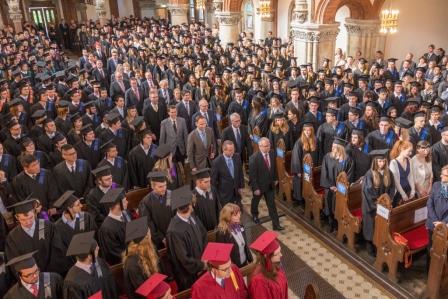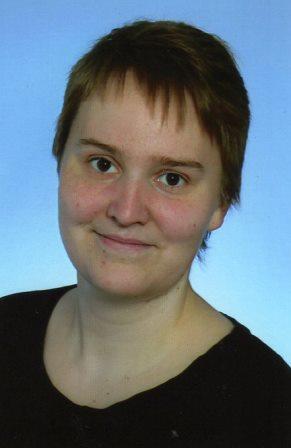Alumni with specialisation in TESOL
The double-specialisation format of our MA degree, its assortment of modules and the extra-curricular initiatives we offer train our students in developing their employability skills. Because our TESOL section melds academic rigor with hands-on training, our graduates can take up work in a wide range of fields. Here is what some of our alumni have to say:
Name: Dan Fan, M.A.
Graduated: 2019
Specialisations: TESOL, Media and Culture
Why did you choose TESOL?
Being a teacher is the most desirable job to me. It is just not enough to say that I want to be a teacher. I also need relevant knowledge in order to be able to teach and help students in a professional way.
What was the highlight of the specialisation?
I think that all the courses I took are very important. From theory to practice, they are all in one ring and are indispensable. I am very grateful to attend a course called “Classroom Observation”, so that I could enter the German school classroom and observe how German teachers taught English. Of course, practical teaching was also quite a test of what I had learned from TESOL.
What are you doing now?
I am doing an internship as a sales assistant at a Chinese trading company in Cologue, which is more related to my undergraduate study. However, after this internship, I would like to continue looking for teaching-related work.
How did the TESOL specialisation prepare you for the workplace?
TESOL not only helps to teach better English, it can also inspire me in other ways. Although TESOL is not directly related to the work I am doing now, it allows me to know how adults learn, and how to better teach adults to learn. For example, sometimes I need to hand over some of my work to other new interns, and then I need to apply what I learned from TESOL.
By the way, before I got this internship, I had worked as an English teacher at Folk High School in Chemnitz for almost one year. From specific curriculum arrangement, to authentic teaching materials related to each lesson, as well as teaching activities, all of these practical things are learned from TESOL.
What do you most like about your job?
This job in Cologne makes me find that being a teacher is more suitable for me.
What are the challenges of teaching, and how do you address them?
For me, the pre-class preparation at the beginning was very challenging. I had to spend a lot of time searching for other authentic and interesting teaching materials to motivate students.
What tips do you have for students who are considering specialising in TESOL at TU Chemnitz?
No need to hesitate, it will benefit for life, so just choose it!
Name: Sümeyya Sarikaya, M.A.
Graduated: 2018
Specialisations: TESOL and English Literature
Why did you choose TESOL?
The TESOL specialisation is a perfect choice for those who want to pursue a career as an English Language trainer professionally in Germany or overseas.
What are you doing now?
I work as an English instructor in an English preparatory programme at Yasar University in Turkey.
How did the TESOL specialisation prepare you for the workplace?
The TESOL programme at TU Chemnitz prepares you with the knowledge and skills necessary for working at institutions of higher learning. The programme provides you with those skills through its intensive and richly designed course plan consisting of academic insight into second language acquisition theories and more. Most importantly, you will gain practical insight into syllabus design, lesson planning and online teaching tools and also have the opportunity to observe lessons at several schools in Germany – not to mention the teaching practice at a professional setting at TU Chemnitz. It will increase your chances to secure work at an institution of higher education.
What do you most like about your job?
There is no end to professional development in English language teaching. There are so many training opportunities available -- webinars, seminars and new trends in teaching methodologies. I like the chance to improve myself in a never-ending journey to be the best. It keeps me young.
What are the challenges of teaching, and how do you address them?
Indeed, there are many challenges to address, yet there are ways to overcome them. Unfortunately, some institutions have a strict policy to hire native speakers of English exclusively, even if not qualified, rather than taking on a qualified teacher who is a non-native English speaker. Thankfully, other institutions are better informed.
What tips do you have for students who are considering specialising in TESOL at TU Chemnitz?
I know there are many indecisive students who do not know which specialisation module to choose. I strongly suggest they choose TESOL since it will increase their chances of landing a teaching job locally or overseas. Most professional institutions of higher learning look for teachers with an MA degree in TESOL. Why can’t that be you?
Name: Jennifer Zschocke, M.A.
Graduated: 2016
Specialisations: TESOL and Linguistics
Why did you choose TESOL?
I really enjoy working with people; I love teaching, so this was the perfect specialisation.
What was the highlight of the specialisation?
The practical teaching experience I gained! For my work placement, I taught English to university students in Modena, Italy. The TESOL option was an excellent way to learn something whilst enjoying life to the fullest.
What are you doing now?
I have been teaching at a vocational college here in Chemnitz since September 2016. It is an amazing job because I meet so many different people with different needs and experiences. My classes vary in size from 5 to 23 students, and all classes have students with different levels of proficiency. This can be a real challenge, but it makes the job much more interesting.
How did the TESOL specialisation prepare you for the workplace?
It helped me to learn the fundamental aspects of teaching. Preparing lesson plans, and learning about methods and didactics was only a small part of it. Moreover, I had the chance to gain practical experience and was able to practice different teaching styles.
What do you most like about your job?
Definitely the different people and characters I meet every day.
What are the challenges of teaching, and how do you address them?
Well, there are only two challenges: the different proficiency levels of students in one class (and between individual classes) and managing the workload. Tackling the workload is easy; it’s about good time management and preparation. The different proficiency levels are a bigger challenge, but a good one. I try to include all students in my lessons and use different techniques and methods to help weaker students.
What tips do you have for students who are considering specialising in TESOL at TU Chemnitz?
Be passionate about teaching! You need to have fun, or your students (and you) will not enjoy it.
Name: Erik Schreiber, M.A.
Graduated: 2011
Specialisations: TESOL and Linguistics
Why did you choose TESOL?
I was one of the first students to enrol in the newly established Bachelor’s degree programme at TU Chemnitz in 2006, just as they began phasing out the Magister. And when it came to selecting my Master’s degree, of all the possible specialisations, TESOL seemed to be the most useful in “real life” (i.e. outside the university environment) and considering the sad truth that my family was rather sceptical about job opportunities with a degree in English, the decision for the TESOL module was an easy one.
What was the highlight of the course?
The compulsory internship was surely the highlight of the course, since it provided me with the chance to apply what I had learnt and to have some valuable practical experiences.
What are you doing now?
Currently, I work as an editor in a Human Resources consulting agency near Hamburg. My responsibilities include creating, reviewing and editing all kinds of texts related to recruiting, employer branding and human resources management in German, English and occasionally in other languages.
How did the TESOL specialisation prepare you for the workplace?
The TESOL course contributed to honing my professional and social skills, which helps a lot in dealing with customers and colleagues.
What do you most like about your job?
I get to read a lot! And I really do appreciate the regular working hours in the company.
What tips do you have for students who are considering specialising in TESOL at TU Chemnitz?
If you are thinking about the specialisation for your Master’s degree, consider TESOL. It is the most practical and hands-on option, and it will allow you to leave the “ivory tower” of the university and to really get out there. Even if you are not really sure yet, whether you want to become a teacher, give it a try; throw yourself into it with all you’ve got, and make try to make the most of it.





